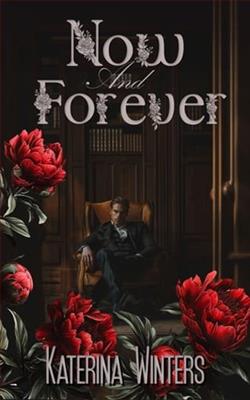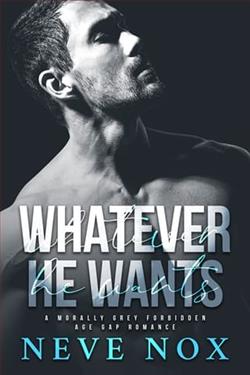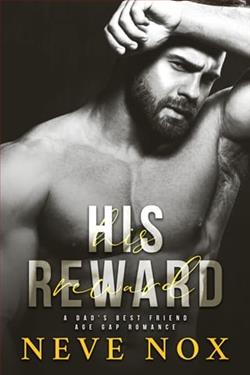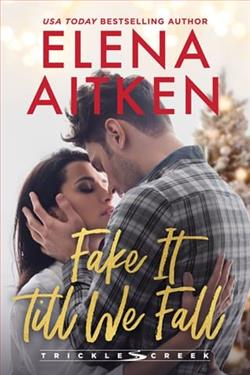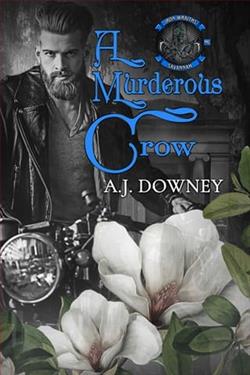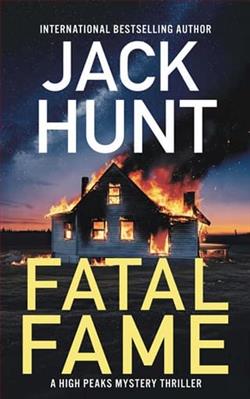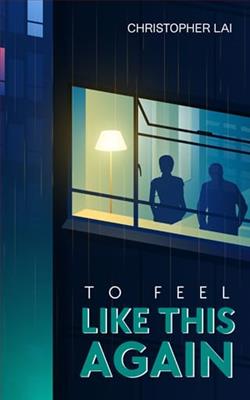Page 30 of Stone
“He moved to the East Coast. Boston for a while. Went to college there, then eventually ended up with a scholarship to Yale for his MBA.”
“And now?”
A roar rose from the crowd, signaling the arrival of the officials from the planning commission and representatives of three development companies with projects in the works. They’d discussed whether Gregor, as a local, would show, but didn’t expect him.
“He’s a bigwig developer,” he said, the irony not lost on him. “Based in New York City. He lives in his high castle, a penthouse along the park. Eats at the best places, is seen in all the right spots, shakes the hands of all the right people. And doesn’t ever let anyone into his life.” He paused again, thinking of his brother and the last time he’d seen him. Stone had flown out for James’s fortieth birthday. They’d sat in his darkened penthouse for hours, sipping scotch and saying no more than a dozen words each. The next morning, he’d hugged his brother, told him to come visit sometime, then hopped on a plane and headed back to Mystery Lake and his brothers—the brothers who knew every nook and cranny of Stone’s soul.
“He sounds…different.”
At that, Stone chuckled. “In many ways. When he was finally free, he craved solitude, needed to not have responsibility for anyone other than himself. Like I said, he carried a lot growing up. More than any kid should. I’m grateful to him, and I understand why he’s chosen the life he has. I don’t think it will last forever, but it’s what he needs now.”
“Whereas you created a different family,” she said.
He nodded. “I wanted family. A real family. I craved connection and community. To a certain extent, I found that in the military, but mostly I found it with the Falcons.” She fell silent, rarely a good thing in his mind, so he turned to check on her.
She held his gaze, hers as serious as he’d ever seen it. “I suspect there’s more to that story than we can talk about now, but you are a remarkable human being, Simon McLean.”
His throat choked with denial, with the urge to downplay every choice he’d made, every risk he’d taken, every time he’d triumphed over the scars of his upbringing. Instead, he reached out and fingered a lock of hair that had come loose from her bun. “I don’t know that I’d use that word, but thank you. It took a lotto figure out what I wanted, what wasgoodfor me. I still work at it. Every day. But it’s important. I like who I am. I like—love—the family I’ve helped build. But it’s a daily choice. Some days I’m better at it than others.”
She took his hand in hers and kissed his palm. “The fact that yourecognizeit as a choice is remarkable, let alone what it is that youdowith that choice.”
He leaned forward, wanting to kiss her, wanting to connect with her in the most primitive and elemental ways. Her lashes fluttered and her lips parted. She wanted it, too. He still had so many questions about her childhood, but for now, his vulnerability had him craving her assurance, craving her acceptance.
The sudden bleat of a megaphone had them jerking apart before their lips had a chance to connect. Their eyes held as a man started talking about the history of the neighborhood and the importance it played in the communities who’d lived there—the Italians and Maltese, then a Chinese shrimping community, and finally, the predominantly Black enclave it still was.
Stone pulled his gaze away from Juliana and scanned the crowds again. The attendees appeared to be mostly residents, but judging by the signs several protestors held, various Bay Area groups were represented, too.
His attention snagged on a young police officer standing alone, rocking on his heels, warily eyeing the crowd, his hand resting above his gun. Stone didn’t like nervous people with guns—the combination didn’t tend to turn out well. Something caught the officer’s attention, and his head jerked to his right. Stone followed his line of sight but could see nothing other than the same large crowd.
He started tugging Juliana toward the man in the hopes of getting a better view, but she held him back.
“There,” she said, her own attention locked on a small group thirty feet away.
He eyed the officer one more time, then switched his focus. “What am I looking for?” he asked.
“Anna Palmer,” she said, nodding to the right-hand side of the cluster.
The woman had her back to them, but Stone instinctively knew Juliana had spotted their reporter. Anna Palmer was tall and waif-thin and sported a long gray ponytail falling from high on her head. In silence, they watched her interact with several of the protesters.
Perhaps one of the last of a dying breed of people who made a living in journalism, Anna Palmer was the real deal. Her childhood had been influenced by the famous San Francisco hippie movement of the 1960s and early 70s. Her teenage years by the rise of the punk scene and culture. TheSan Francisco Chroniclepublished her first article at the age of twenty, and she’d been publishing ever since—over forty years. Numerous awards lined her shelves, famous magazines invited her to write for them, and news shows often asked her to be their guest.
But while she’d done both national and international work, her heart seemed to remain in San Francisco, and the bulk of her career had been spent on local politics, local problems, local solutions, and local communities.
After conferring with Philly and Monk, they’d agreed that if given the opportunity, he and Juliana would approach her. Everything they had on Lowery, Polinsky, and Gregor was circumstantial. Maybe, if they shared it with the experienced reporter, she’d have ideas as to what they could do next.
“Do you want to approach her now?” she asked.
Ms. Palmer was speaking with two people—a woman who rested her hands on the back of a wheelchair and an elderly man seated in it.
Stone shook his head. “Let’s keep an eye on her and wait until things quiet down. We might have a better chance of grabbing time to talk then.”
Juliana nodded. “Let’s move a little closer. I don’t want to lose sight of her.”
He agreed, and they meandered toward the group, but not so close as to appear weird. Over the next hour, they listened to speeches and music and watched a dance performance. Food carts moved up and down the streets and the whole event—though undeniably a protest—took on the feel of a community celebration. Which, in some ways, made sense. The area wasn’t without its challenges, but it also had a population that cared. A population that didn’t want their neighborhood turned into yet another high-income development.
Around three, people started wandering off, no doubt to meet kids after school, or head to their shifts, or get an early start on the evening’s activities. Ms. Palmer hadn’t moved around much—people tended to come to her—which made it easy to locate her when the time was right.
“Ready?” he asked Juliana, nodding to the reporter. Palmer was talking with an older man, and the two seemed to be ending what looked like an intense conversation. He gestured to her notebook, she nodded, then she reached out and touched his arm. The man’s lips thinned—Stone would bet at the situation, not Palmer—then he, too, gave a sharp nod before walking away.








